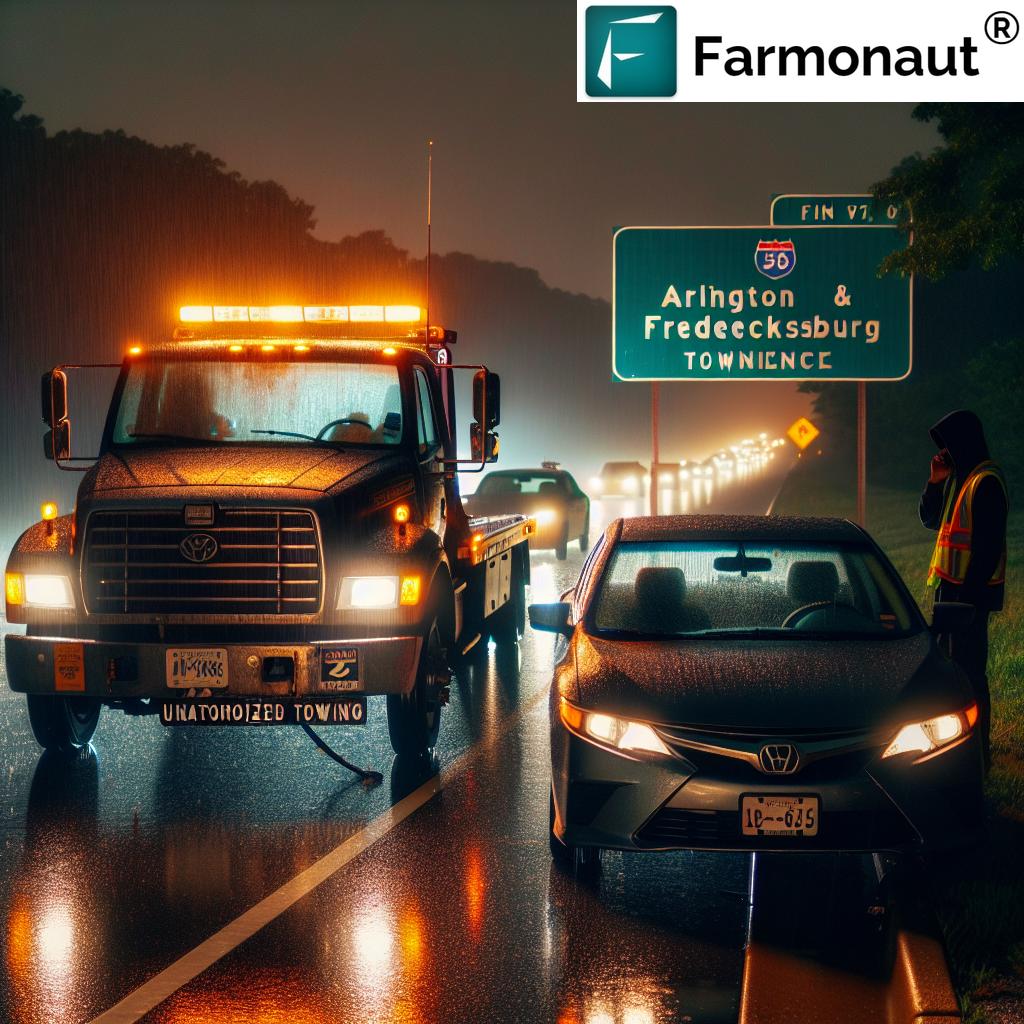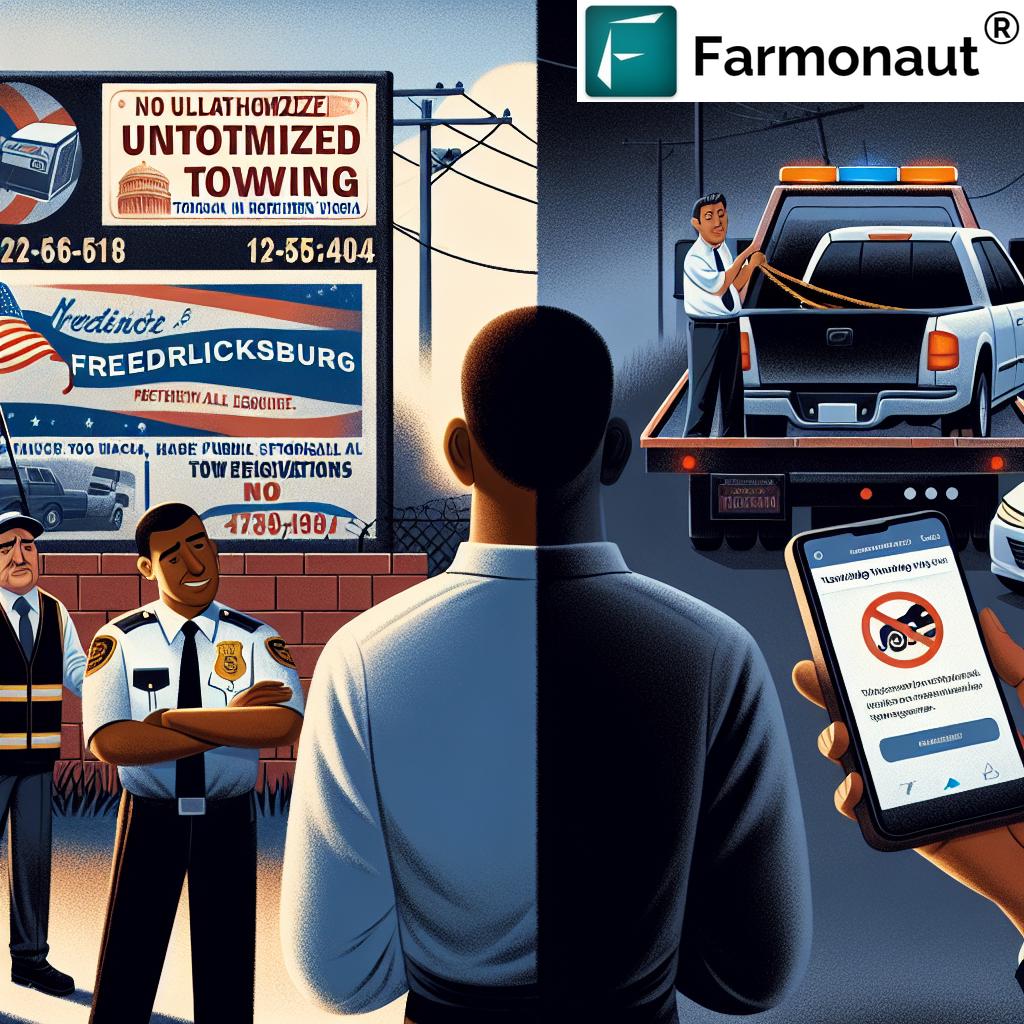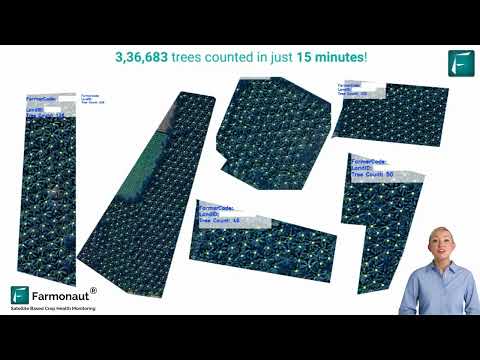Protect Your Vehicle: Exposing Predatory Towing Scams in Northern Virginia – Essential Safety Tips
“A recent predatory towing incident in Northern Virginia resulted in an astonishing $8,300 charge, leading to criminal grand larceny charges.”

In recent years, predatory towing in Virginia has become a pressing concern, particularly in Northern Virginia and Fredericksburg. As concerned citizens and advocates for consumer rights, we feel compelled to shed light on this alarming trend that has left many vehicle owners feeling vulnerable and exploited. The rise of unauthorized towing scams has highlighted the urgent need for increased public awareness and protective measures against these fraudulent practices.
In this comprehensive guide, we’ll explore the intricacies of predatory towing, provide essential towing safety tips, and equip you with the knowledge to protect yourself against towing fraud. We’ll delve into towing regulations in Northern Virginia, discuss how to report unauthorized towing, and emphasize the importance of towing insurance coverage. By the end of this article, you’ll be well-informed and prepared to safeguard your vehicle against these unscrupulous practices.
Understanding Predatory Towing in Virginia
Predatory towing refers to the illegal or unethical practices employed by some towing companies to maximize profits at the expense of vehicle owners. These tactics often involve excessive fees, unauthorized tows, and intimidation. In Northern Virginia, including areas like Arlington and Fredericksburg, such incidents have become increasingly common, raising alarm among residents and local authorities alike.
A recent case that garnered significant attention involved a staggering $8,300 towing charge, which not only shocked the victim but also led to criminal charges of grand larceny against the tow truck operator. This incident serves as a stark reminder of the severity of these offenses and the need for vigilance among vehicle owners.
The Anatomy of a Predatory Towing Scam
To better understand how these scams operate, let’s break down the typical elements of a predatory towing incident:
- Misrepresentation: Tow truck drivers may falsely claim to be authorized by insurance companies or local authorities.
- Excessive Fees: Charging exorbitant amounts for towing and storage, far beyond reasonable rates.
- Unauthorized Towing: Removing vehicles from private or public property without proper authorization.
- Intimidation Tactics: Using aggressive behavior or threats to coerce payment from vehicle owners.
- Hidden Charges: Adding unexpected fees for “additional services” that were not requested or necessary.
As we delve deeper into this issue, it’s crucial to remember that knowledge is your best defense against these predatory practices.
Towing Regulations in Northern Virginia
Understanding the legal framework surrounding towing in Northern Virginia is essential for protecting yourself against fraudulent practices. Each county and city may have specific regulations, but there are general guidelines that apply across the region:
- Authorization: Towing companies must have proper authorization from property owners or law enforcement to remove a vehicle.
- Signage: Private properties must display clear signage indicating towing policies and contact information for the towing company.
- Fee Limitations: Many jurisdictions set maximum fees for towing and storage to prevent price gouging.
- Release Requirements: Towing companies must release a vehicle to its owner if they arrive before the tow is completed, often for a reduced “drop fee.”
- Documentation: Tow truck operators are required to provide itemized receipts and maintain proper records of all tows.
It’s important to note that these regulations can vary slightly between Arlington, Fredericksburg, and other parts of Northern Virginia. Always check with your local authorities for the most up-to-date information specific to your area.
Essential Towing Safety Tips
To protect yourself from falling victim to predatory towing scams, consider the following safety tips:
- Verify the Towing Service: Always confirm with your insurance provider or local authorities before allowing anyone to tow your vehicle.
- Document Everything: Take photos of your vehicle and the tow truck, including license plates and any damage.
- Know Your Rights: Familiarize yourself with local towing regulations and don’t be afraid to assert your rights.
- Avoid Cash Payments: Legitimate towing companies should accept credit cards or other traceable payment methods.
- Request Identification: Ask to see proper identification and licensing from the tow truck operator.
“Predatory towing scams have become a significant issue in Northern Virginia and Fredericksburg, prompting increased public awareness campaigns.”

How to Protect Against Towing Fraud
Protecting yourself against towing fraud requires vigilance and proactive measures. Here are some strategies to safeguard your vehicle and your wallet:
- Research Local Towing Companies: Keep a list of reputable towing services in your area, verified by your insurance provider or local authorities.
- Understand Your Insurance Coverage: Know what your insurance policy covers in terms of towing and roadside assistance.
- Be Cautious in Private Parking Lots: Always read and follow parking regulations in private lots to avoid legitimate tows.
- Use Technology: Consider using GPS tracking devices or apps that can help locate your vehicle if it’s towed.
- Join a Roadside Assistance Program: Many of these programs offer reliable towing services as part of their benefits.
By implementing these protective measures, you significantly reduce your risk of falling victim to predatory towing practices.
Reporting Unauthorized Towing
If you suspect you’ve been a victim of predatory towing, it’s crucial to report the incident promptly. Here’s how to proceed:
- Contact Local Law Enforcement: File a police report detailing the incident.
- Notify the Virginia Attorney General’s Office: They handle consumer complaints and can investigate fraudulent practices.
- Inform Your Insurance Company: They can provide guidance and may have resources to assist you.
- Document Everything: Keep all receipts, take photos, and record any conversations with the towing company.
- Reach Out to Local Consumer Protection Agencies: They can offer additional support and resources.
Remember, reporting these incidents not only helps you but also contributes to the broader effort of combating predatory towing in our communities.
Understanding Vehicle Storage Charges
One of the most contentious aspects of predatory towing is excessive vehicle storage charges. Here’s what you need to know:
- Legal Limits: Many jurisdictions in Northern Virginia have set maximum daily storage fees.
- Notification Requirements: Towing companies are typically required to notify vehicle owners within a specified timeframe.
- Access to Personal Property: You should be allowed to retrieve personal items from your vehicle without paying the full towing and storage fees.
- Itemized Billing: Request a detailed breakdown of all charges, including the duration of storage.
- Negotiation: In some cases, you may be able to negotiate lower storage fees, especially if there were any violations of towing regulations.
Being informed about these aspects can help you challenge unfair storage charges and protect your rights as a vehicle owner.
The Importance of Towing Insurance Coverage
Having adequate towing insurance coverage can be a crucial safeguard against the financial impact of predatory towing. Here’s why it’s important:
- Financial Protection: It can cover the costs of legitimate towing and storage, reducing out-of-pocket expenses.
- Verified Service Providers: Insurance companies often have a network of reputable towing services.
- Assistance in Disputes: Your insurance provider can advocate on your behalf if you encounter fraudulent practices.
- Peace of Mind: Knowing you’re covered can alleviate stress in already difficult situations.
- Additional Services: Many towing insurance plans include extra benefits like roadside assistance.
We strongly recommend reviewing your current insurance policy and considering adding or upgrading towing coverage if necessary.
Legal Recourse for Victims of Predatory Towing
If you find yourself a victim of predatory towing, it’s important to know that you have legal options. Here’s an overview of potential legal recourses:
- Small Claims Court: For disputes involving smaller amounts, this can be an effective and less costly option.
- Civil Lawsuits: In cases of significant financial loss or repeated violations, a civil lawsuit may be appropriate.
- Criminal Charges: In extreme cases, like the recent incident involving grand larceny charges, law enforcement may pursue criminal action.
- Consumer Protection Laws: Virginia has laws protecting consumers from unfair business practices, which can be applicable in towing disputes.
- Mediation Services: Some localities offer mediation services to resolve disputes between vehicle owners and towing companies.
It’s advisable to consult with a legal professional to understand the best course of action for your specific situation.
Community Efforts to Combat Predatory Towing
Addressing the issue of predatory towing requires a collective effort. Here are some ways communities in Northern Virginia are fighting back:
- Public Awareness Campaigns: Local governments and consumer groups are working to educate the public about towing rights and regulations.
- Legislative Action: Advocacy for stronger laws and regulations to protect consumers from predatory practices.
- Community Reporting Systems: Establishment of hotlines or online platforms for reporting suspicious towing activities.
- Partnerships with Local Businesses: Collaborations to ensure fair towing practices in private parking lots.
- Regular Audits of Towing Companies: Increased scrutiny and licensing requirements for towing operators.
By staying informed and participating in these community efforts, we can all contribute to creating a safer environment for vehicle owners.
Technology and Tools to Prevent Unauthorized Towing
In the digital age, technology offers new ways to protect our vehicles from predatory towing. Here are some innovative solutions:
- GPS Tracking Devices: Install a GPS tracker in your vehicle to monitor its location in real-time.
- Mobile Apps: Use apps that alert you if your vehicle is moved from its parked location.
- Smart Parking Solutions: Utilize parking apps that provide information on legitimate parking areas and potential towing risks.
- Dashcams: Install a dashcam that can record any unauthorized attempts to tow your vehicle.
- Digital Payment Systems: Use apps for paying parking fees to ensure you have a digital record of compliance.
While technology can be a powerful ally, it’s important to remember that it should complement, not replace, basic vigilance and awareness.
Educating the Public: Key to Prevention
One of the most effective ways to combat predatory towing is through education. Here’s how we can spread awareness:
- Community Workshops: Organize local events to educate residents about their rights and how to identify predatory practices.
- Social Media Campaigns: Utilize platforms like Facebook and Twitter to share information and alerts about towing scams.
- Collaboration with Schools: Incorporate information about vehicle rights and responsibilities into driver’s education programs.
- Multilingual Resources: Ensure that educational materials are available in multiple languages to reach all community members.
- Regular Updates on Local Regulations: Keep the public informed about any changes in towing laws or regulations.
By empowering our community with knowledge, we create a stronger defense against predatory towing practices.
The Role of Local Government in Towing Regulation
Local governments play a crucial role in regulating towing practices and protecting consumers. Here’s how they’re involved:
- Licensing and Oversight: Implementing strict licensing requirements for towing companies.
- Fee Regulation: Setting and enforcing maximum fees for towing and storage.
- Complaint Resolution: Establishing systems for handling and investigating towing-related complaints.
- Public Safety Coordination: Working with law enforcement to ensure towing practices don’t compromise public safety.
- Regular Audits: Conducting periodic reviews of towing company practices and compliance.
Engaging with local government officials and attending public meetings can help ensure that towing regulations remain a priority in our communities.
Frequently Asked Questions
Q: What should I do if I suspect my vehicle has been illegally towed?
A: First, contact local law enforcement to report the incident. Then, gather all available information about the tow, including location, time, and any witnesses. Contact your insurance provider for guidance and consider filing a complaint with the Virginia Attorney General’s Office.
Q: Are there limits to how much a towing company can charge in Northern Virginia?
A: Yes, many jurisdictions in Northern Virginia have set maximum fees for towing and storage. These limits can vary by locality, so it’s important to check with your specific county or city government for the most up-to-date information.
Q: How can I verify if a towing company is legitimate?
A: Ask for proper identification and licensing from the tow truck operator. You can also verify the company’s credentials with local authorities or your insurance provider. Be wary of unmarked trucks or operators who can’t provide proper documentation.
Q: What rights do I have if my vehicle is in the process of being towed?
A: In many cases, if you arrive while your vehicle is in the process of being towed but hasn’t left the property, you have the right to have your vehicle released for a reduced “drop fee.” However, this can vary by jurisdiction, so it’s important to know your local regulations.
Q: How can I report a predatory towing company?
A: You can report predatory towing practices to your local police department, the Virginia Attorney General’s Office, and your local consumer protection agency. Be sure to provide as much detailed information as possible, including dates, times, locations, and any documentation you have.
Conclusion
Predatory towing in Virginia, particularly in Northern Virginia and Fredericksburg, is a serious issue that requires our attention and action. By understanding the tactics used by unscrupulous towing operators, knowing our rights, and staying vigilant, we can protect ourselves and our communities from these fraudulent practices.
Remember, knowledge is power. Stay informed about local towing regulations, verify towing services before use, and don’t hesitate to report suspicious activities. By working together and raising awareness, we can create a safer environment for all vehicle owners in Northern Virginia.
Let’s continue to advocate for stronger consumer protections and support initiatives that combat predatory towing. Your vehicle is a valuable asset, and you have the right to protect it from unauthorized and exploitative practices. Stay informed, stay vigilant, and drive safely!
| Towing Scenario | Red Flags | Protective Measures |
|---|---|---|
| Parking Lot Towing |
– Unmarked tow truck – No clear signage about towing policies – Aggressive behavior from operator |
– Always read and follow parking regulations – Take photos of your parked vehicle and surroundings – Use reputable parking apps for payment and tracking |
| Roadside Assistance |
– Unsolicited offers for towing – Pressure to use a specific repair shop – Refusal to provide written estimate |
– Verify towing service with insurance provider – Use pre-vetted roadside assistance programs – Insist on written estimates before agreeing to service |
| Accident Scene Towing |
– Arrival before emergency services – Claims of “official” status without proof – Demands for immediate cash payment |
– Wait for police to arrive before agreeing to towing – Confirm towing arrangements with your insurance – Never pay cash on the spot for towing services |
Useful Links:
Earn With Farmonaut: Affiliate Program
Earn 20% recurring commission with Farmonaut’s affiliate program by sharing your promo code and helping farmers save 10%. Onboard 10 Elite farmers monthly to earn a minimum of $148,000 annually—start now and grow your income!







